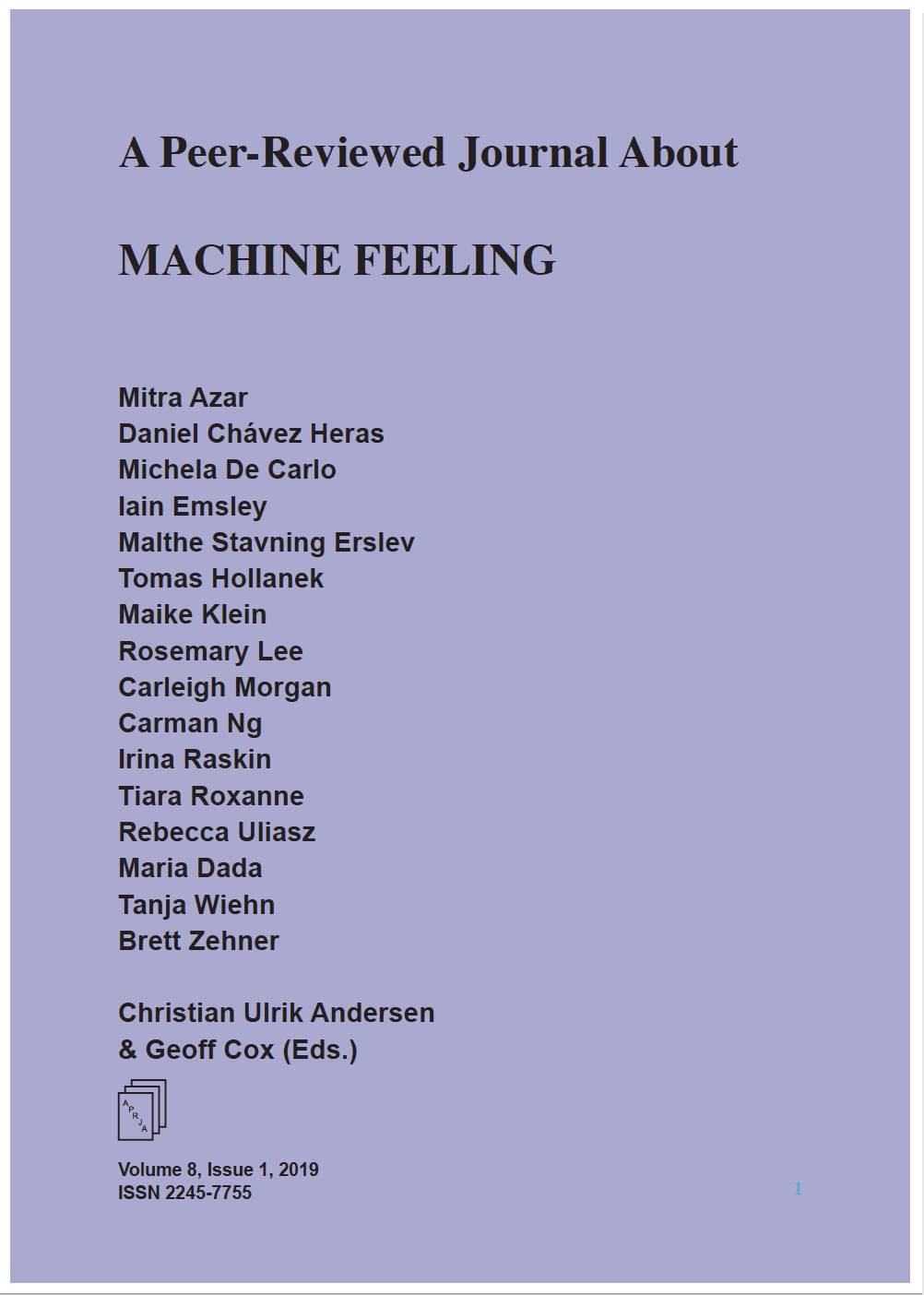Machines of subjection
Notes on a tactical approach to artificial intelligence
DOI:
https://doi.org/10.7146/aprja.v8i1.115414Abstract
As the big data revolution ramps up, we are drawn to online platforms that modulate political identity far removed from so-called liberal politics (Cheney-Lippold 2011, 165). There are two ends to the extreme. We have seen the return of white supremacists on supposedly democratic networks while on the ‘back end’ of computational culture, algorithms de-subjectify users for proprietary gain. In the broad sense here, subjectivity is an individual’s relation to themselves. However, machine learning occupies a powerful position within the logics of capital by shifting the site of identification into a digital sphere (165). With the widespread use of machine learning practices, abduction creates an overall “sensibility to change and alter events” (Mackenzie 2013, 402). By abstracting concrete social practices into dta vectors, machine learners measure, forecast and modulate human behaviors. Put simply, machine learners have become some of the most potent social inscription devices today. It is within this context that my dissertation asks — how does the recent ubiquity of machine learning affect how we wield political subjectivity?
Downloads
Published
Issue
Section
License
Copyright (c) 2019 A Peer-Reviewed Journal About

This work is licensed under a Creative Commons Attribution-NonCommercial-ShareAlike 4.0 International License.
Copyrights are held by the individual authors of articles.
Unless stated otherwise, all articles are published under the CC license: ‘Attribution-NonCommercial-ShareAlike’.
The journal is free of charge for readers.
APRJA does not charge authors for Article Processing Costs (APC)


